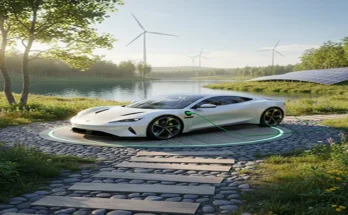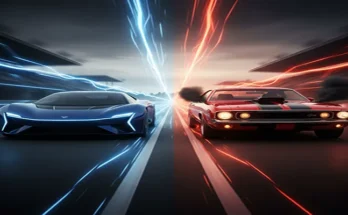Lithium-ion batteries have revolutionized the way we power our devices and systems, making them an integral part of modern life. Their versatility, high energy density, and long cycle life have driven their adoption across various fields. This article explores the diverse applications of lithium-ion batteries and examines their impact on technology and society.
Consumer Electronics
Smartphones and Tablets
Lithium-ion batteries are the cornerstone of modern portable electronics, powering smartphones and tablets. Their compact size and ability to hold a charge for extended periods make them ideal for devices that require both high performance and portability. Advances in battery technology have enabled slimmer devices with longer battery life, significantly enhancing user experience.
Laptops
Laptops also rely heavily on lithium-ion batteries, providing the necessary power for both work and entertainment on the go. These batteries enable laptops to operate efficiently without being tethered to a power outlet, which is crucial for mobile professionals and students alike. Enhanced battery technology has contributed to lighter, more powerful laptops with improved battery life.
Wearable Devices
Wearable technology, such as smartwatches, fitness trackers, and augmented reality (AR) glasses, relies on lithium-ion batteries to function effectively. These batteries offer the right balance between size, weight, and energy density, allowing wearable devices to operate for extended periods while remaining lightweight and compact.
Electric Vehicles (EVs)
Lithium-ion batteries are the driving force behind electric vehicles (EVs), offering a cleaner alternative to internal combustion engines. The high energy density of lithium-ion batteries translates into longer driving ranges and faster acceleration for EVs. Additionally, advancements in battery technology are continually improving the efficiency, safety, and cost-effectiveness of electric vehicles, contributing to their growing popularity.
Renewable Energy Storage
Solar Energy Systems
As renewable energy sources like solar power become more prevalent, lithium-ion batteries play a crucial role in energy storage systems. These batteries store excess energy generated during sunny periods for use when sunlight is not available. This capability is vital for balancing supply and demand, making solar energy more reliable and efficient.
Wind Power
Similarly, lithium-ion batteries are used in conjunction with wind turbines to store and manage the energy produced. This storage capability helps to smooth out the fluctuations in wind power generation, ensuring a more consistent and reliable energy supply.
Power Tools
Lithium-ion batteries have revolutionized the power tools industry by replacing older nickel-cadmium (NiCd) batteries. Their lightweight, compact design and rapid charging capabilities make them ideal for tools such as drills, saws, and impact drivers. The improved performance and longer battery life have enhanced the usability and efficiency of power tools for both professionals and DIY enthusiasts.
Medical Devices
Portable Medical Equipment
In the medical field, lithium-ion batteries are used in portable devices such as insulin pumps, hearing aids, and portable oxygen concentrators. These batteries provide reliable, long-lasting power, which is essential for the operation of critical medical equipment.
Implantable Devices
Lithium-ion batteries are also used in implantable medical devices like pacemakers and defibrillators. Their compact size and longevity are crucial for these devices, which need to operate continuously without frequent replacements.
Consumer and Industrial Applications
Drones
Lithium-ion batteries power a wide range of drones, from hobbyist models to professional-grade aerial photography equipment. Their high energy density and lightweight nature are essential for extending flight times and enhancing drone performance.
Electric Bicycles and Scooters
Electric bicycles (e-bikes) and scooters use lithium-ion batteries to provide power for propulsion. These batteries enable longer commutes and easier travel, promoting more sustainable transportation options.
Challenges and Future Outlook
While lithium-ion batteries offer numerous advantages, they are not without challenges. Issues such as resource scarcity, environmental impact, and battery disposal are significant concerns. Researchers and engineers are working on solutions to address these challenges, including developing more sustainable battery materials, improving recycling methods, and advancing alternative battery technologies.
Resume
Lithium-ion batteries have become an indispensable part of modern technology, powering everything from everyday consumer electronics to critical medical devices and renewable energy systems. Their high energy density, long cycle life, and compact size make them a versatile and effective power source across a wide range of applications. As technology continues to advance, lithium-ion batteries will likely remain at the forefront of innovation, driving progress in numerous fields and contributing to a more connected and sustainable world.





